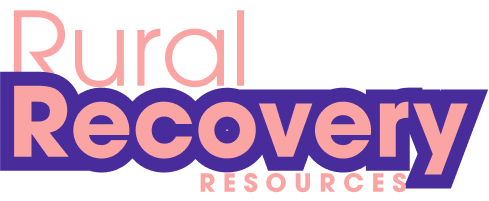Recovery Coach wanted!
Rural Recovery
POSITION TITLE: Recovery Coach
Location: South County Recovery Center 67 State Road Great Barrington, MA
Position: Full-time
Compensation: $34,000-$40,000
Special Benefits: Berkshire Passport ($1000 annually for cultural, wellness, outdoor or fitness activities), $2400 housing benefit (one time). 11 holidays, 10 sick days, 4 personal days off, health insurance.
Rural Recovery Resources (RRR), under the fiscal agency of The Railroad Street Youth Project operates the South County Recovery Center which is dedicated to building a strong recovery community in southern Berkshire County, serving as a safety net for those affected by addiction. AT THE RECOVERY CENTER, PEOPLE ARE SAFE AND SUPPORTED, without judgment or cost. RRR empowers people living with and affected by substance use disorders to self-identify goals and connect to resources for prevention, treatment, and recovery. Using peer-lead, person-centered guidance, RRR supports people no matter which pathway they have chosen or where they are on their journey to address problem substance use in their lives and live in recovery.
RESPONSIBILITIES: Effectively deliver recovery coach services to agency recoverees and to provide services and support to constituents and staff at the South County Recovery Center.
All Massachusetts Recovery Coaches must complete the Recovery Coach Training offered by CCAR and pass the exam and either be certified or be working toward certification.
Essential functions and qualifications of this job include, but are not limited to:
Individual with lived expertise and possessing strong personal skills and professional peer support skills to self-disclose in a manner that is trauma sensitive for the purpose of promoting recovery and wellness for persons served.
Open to medication assisted recovery and harm reduction concepts and goals.
Strong computer skills.
Strong listening, oral, and presentation (communication) skills.
Demonstrated ability to work with a diverse population
Ability to honor recovery coaching ethics and confidentiality
Knowledge of community resources and ability to connect with those resources.
Ability to forge new and maintain existing relationships with established community resources.
Must have an open mind to the many paths to recovery.
· Effectively communicates in a timely manner to Director.
· May transport recoverees on occasion and follows Agency standards, rules, regulations, and all laws for safe transport.
· Completes all relevant RecoveryLink intakes, wellness plans, Recovery Capital assessments, and other documentation in a timely manner.
· May accompany recoverees/ensures recoverees are accompanied when they seek emergency medical treatment relative to their physical or mental health.
· Performs outreach work with recoverees; engages hard-to-reach individuals into recovery-related activities.
· Facilitates the transition from a professionally directed substance use treatment plan to a recoveree developed and recoveree directed Recovery Wellness Plan.
· Listens to the recoveree and expresses genuine care. Is trusted with confidences and identifies areas for potential growth.
· Provides feedback to recoverees on the recovery progress. Identifies areas to the recoveree which have presented or may present challenges to continued or improved recovery.
· Assists recoverees with identifying and resolving personal and environmental obstacles to recovery.
· Is knowledgeable of links and may provide warm-handoff referrals for recoverees to sources of sober housing, recovery-conducive employment, health and social services, and recovery support. Matches recoverees to particular support groups or 12 step-meetings.
· Provides recoverees with normative information about the stages of recovery. Assists in facilitating
a process of change through which individuals improve their health and wellness, live a self- directed
life, and strive to reach their full potential, informs recoverees of the professional helpers within the community, and about the prevalence, pathways, and life-style of long-term recovery.
· Processes recoverees' responses to professional services to reinforce treatment services and encourages successful outcomes.
· Provides coaching and support to recoverees as challenges arise from everyday activities. This is done through one-on-one sessions, group meetings, and telephonic, telehealth, and text contact. Assists recoverees and their families to develop recovery-based rituals of daily living.
· Provides sober companionship; acts as a social bridge from the culture of problematic substance use to the culture of recovery.
· Has an effective interaction with, Director, all volunteers, the Volunteer Coordinator, Outreach Coordinator, Program Assistant.
· Maintains confidentiality of recoveree files and individual recoveree Recovery Wellness Plans and Recovery Checklists.
· Intervenes as necessary to protect recoverees from injuring other recoverees and or themselves.
· Group facilitation and participation in SCRC events
· Regular work schedule of 40 hours per week may include weekends and evenings
QUALIFICATIONS: Lived expertise in substance use and recovery. High School diploma or equivalent preferred. Must Complete CCAR training and begin certification process within three months of assuming the position and must maintain certification in good standing. Flexible schedule including various evening and weekend hours. Must possess valid Massachusetts driver's license, personal vehicle, and a driving record that does not preclude the employee from being covered by agency liability insurance. Must have the ability to effectively work with agency employees, outside contacts, and a diverse recoveree population.
Rural Recovery is an Equal Employment Opportunity Employer (including veterans, disabled, and other protected categories) and a Drug-free Workplace.
To apply: Click HERE
